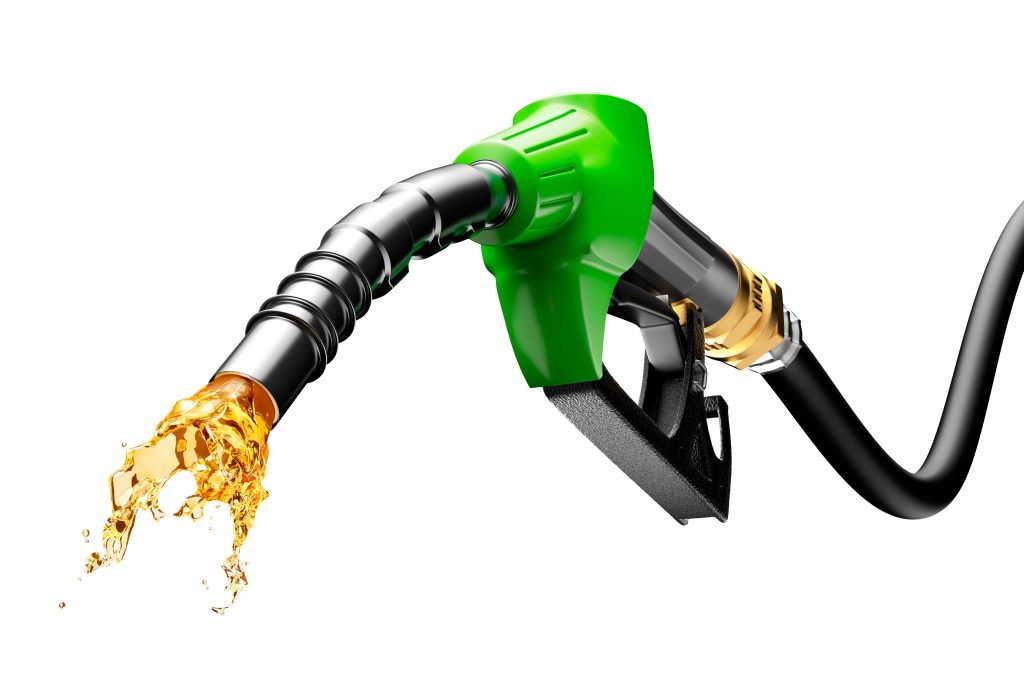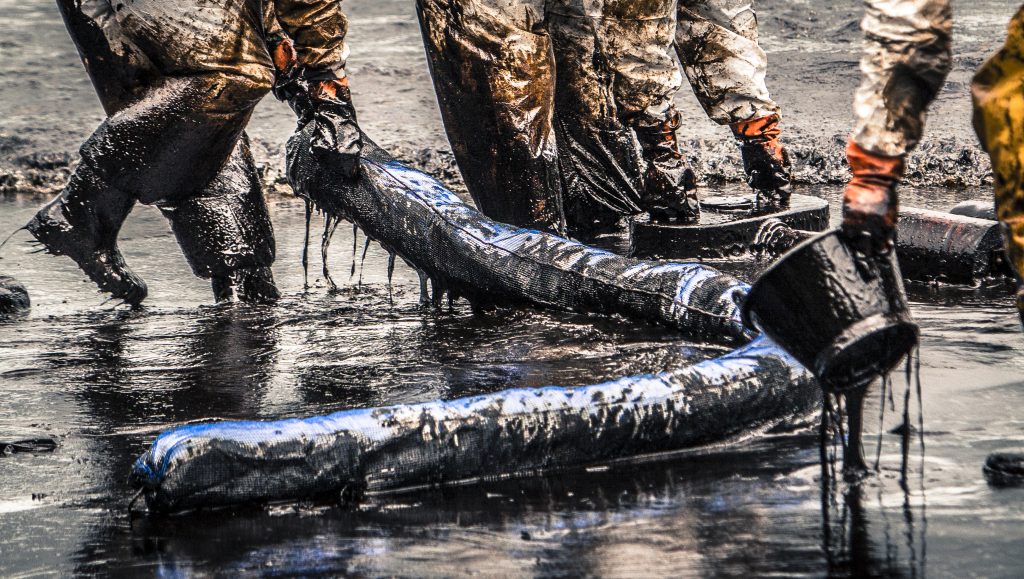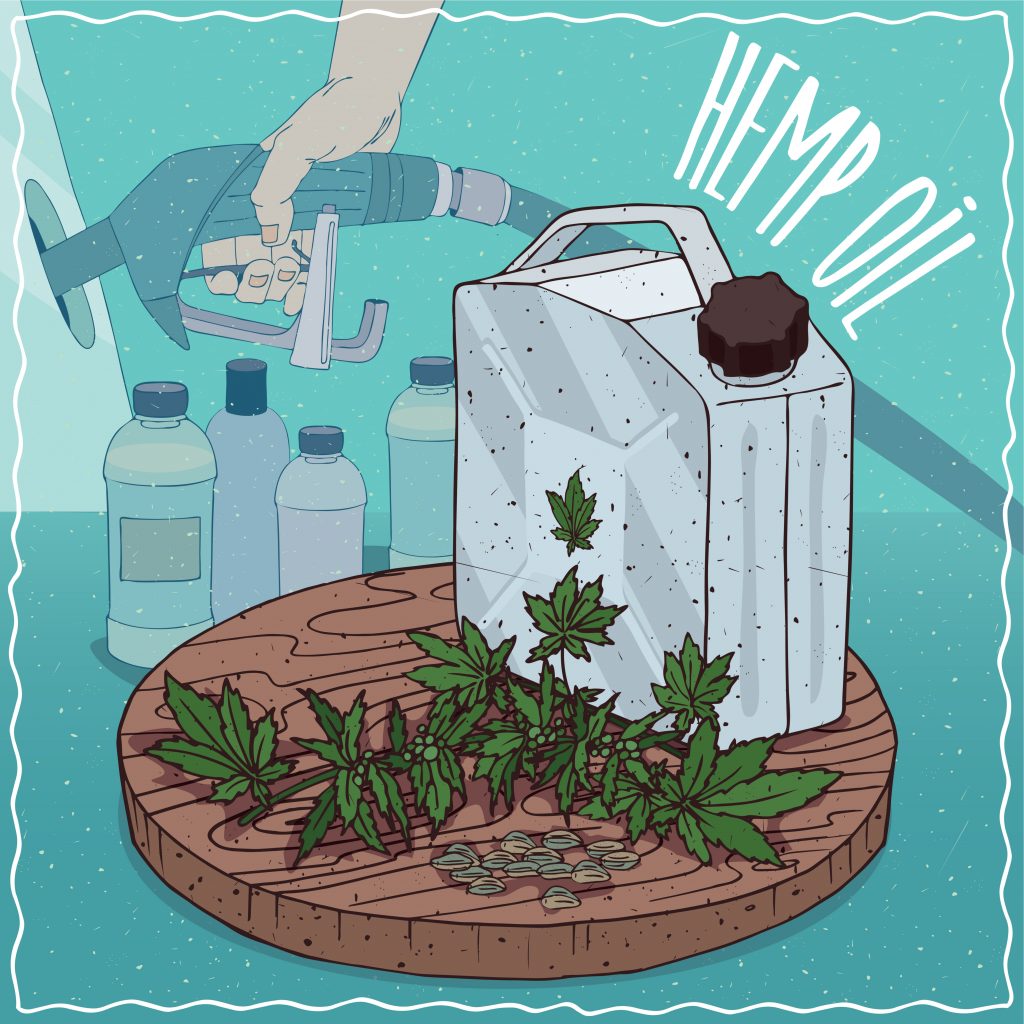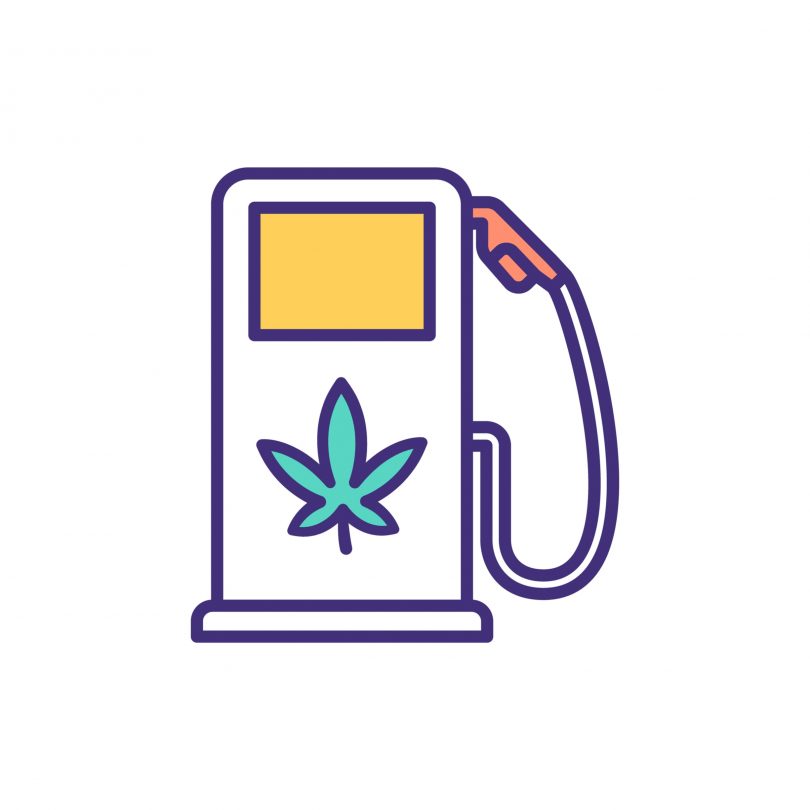Hemp has a million uses (including alternatives for building materials, plastics, paint, leathers, and more) many of which were important in history, and have been slowly coming back into use with the end of prohibition for hemp products. What is one of the newer hemp uses to start making it back to the public? ‘Hempanol’, or hemp fuel, which could serve as an alternative to big oil, and the horrible environmental problems this industry has caused. But can it really break Big Oil’s hold, and become the next big thing in the automotive world?
Hemp fuel could change the landscape of the automotive industry, but it might take a bit longer to cut into Big Oil’s reign. Make sure to subscribe to The THC Weekly Newsletter for all the latest news and important industry stories, as well as access to deals on flowers, vapes, edibles, and many other products. We’ve got great savings for Delta 8, Delta 9 THC, Delta-10 THC, THCO, THCV, THCP & HHC products. Find them in our “Best-of” lists, and enjoy everything the cannabinoids market has to offer!
What is gasoline?
Gasoline, also called ‘petrol’, is a liquid derived from petroleum, also known as crude oil. It’s made of a mixture of organic compounds from fractional distillation of petroleum, with other things, like ethanol, mixed in. While this can vary, about 90% of gasoline composition comes from crude oil, with most gas in America containing about 10% ethanol.
Ethanol is an organic compound known as a simple alcohol. It’s also known as ethyl alcohol, and grain alcohol, and is the same kind of alcohol we ingest with alcoholic drinks. Ethanol is made by the fermentation of sugars with yeasts or with petrochemical processes like ethylene hydration. It is a component of most gasoline sold in the US.
Gasoline fits into two categories: regular gasoline, and diesel. Diesel (a less refined version of crude oil) is another way to power motor vehicles, with ethanol being more standard for regular cars, and diesel being more common for use with larger motor vehicles like trucks, buses, and ships. The most common kind of diesel is made by a particular fractional distillate of petroleum fuel oil. Diesel can also be made synthetically from carbon materials, or as biodiesel using vegetable oils and animals fats.
In the US, in the year 2020, gasoline made up 44% of petroleum consumption. This, according to the US Energy Information Administration, accounts for approximately 338 million gallons of gasoline used per day, which equals 8.05 million barrels per day, and 123.73 billion gallons that year. This is equivalent to 2.95 billion barrels. This was lower than other recent years, likely because of corona, with 2018 holding the record with 392 million gallons per day consumed that year.

What is ‘hempanol’, or hemp fuel?
If you noticed, the word ‘hempanol’ sounds like a conglomeration of two words: hemp and ethanol. Hempanol, also known as hemp fuel, can be broken down into two categories: hemp biodiesel, and hemp ethanol, just like with standard gasoline. Both of these can be used to replace standard gasoline, or combined with it to make a less detrimental gasoline. So what are these substances?
‘Biodiesel’ is an alternative fuel that’s made of a mixture of regular diesel and vegetable oils, or used on its own. It serves as both a renewable and biodegradable gasoline option. Vegetable oils generally used to make it, are soybean oil (the general choice), or animals fats, cooking oil, algae, and hemp.
Hemp biodiesel is created by extracting the oil from hemp seeds via pressing them, and then mixing this with standard diesel oil, or simply using it alone. Hemp biofuel is usable for any engine that takes diesel oil. When vehicles runs on hemp biodiesel, they no longer give off heavy smells of soot, but instead give off the smell of hemp. Can you imagine hemp fumes coming out of all the cars on the road? I’d take that over the mouthful of smoke I get from big trucks on highways.
Hemp ethanol is an alternative ethanol product. Regular ethanol can be made from the fermentation of grains, sugars, starches, corn, sorghum, barley, sugar cane, or sugar beets. What else can be used to make this ethanol?
Yup, hemp. To do this, hemp stalks are shredded and then heated chemically to get the cellulose out of the plant. This cellulose is in turn converted to sugar with enzymes, which is then fermented to ethanol, which is then distilled and purified to become a biofuel usable in automobiles. While cars aren’t designed right now to run on pure ethanol (as that would disrupt the Big Oil industry), they can be made to, which would invalidate the need for crude oil.
Why does this matter?
What we use for fuel matters because it effects our environment and our own health. Efficiency is an issue as well, of course, but when looking at the real and most useful benefits of using biofuels like hemp fuel, the biggest positive lies in what it can do to minimize environmental harm. So what kind of harm are we talking about? Here are some basic stats on oil production, and oil consumption as they relate to the environment.
Gasoline is both a highly toxic and flammable liquid. It produces many byproducts from vapors or when burned which contribute to the pollution in the air. These include: carbon monoxide, nitrogen oxides, particulate matter, unburned hydrocarbons, as well as the greenhouse gas carbon dioxide.
According to the US Energy Information Administration again, one gallon of burned gasoline (which does not contain ethanol) produces approximately 19 pounds of CO2 emissions. Total US CO2 emissions for 2020 in relation to the use of fuel for automobile and aviation, was approximately 979 million metric tons, which amounts to 21% of CO2 emissions in the country that year.

In America alone, about 12.6 million people are unwittingly exposed to toxic pollutants in the air from oil wells, oil transportation, and from processing and waste. These include chemicals like benzene which has been linked to childhood leukemia and blood disorders, as well as formaldehyde which causes cancer.
Those are emissions, but what about extraction?
Before crude oil becomes gasoline, or plastic, or any other product, it must be extracted from the ground. Crude oil is known as a fossil fuel since its made from the fossil remains of plants and animals from millions of years ago. This gives these fuels a high carbon content, mainly in the form of hydrocarbons. Crude oil is obtained by drilling into the earth whether on land or at sea, and then transporting said oil to refineries in supertankers, trains, trucks, and pipelines, all of which are capable of causing spills.
This unearthing process hurts landscapes and ecosystems, with fossil fuel producers often leasing large amounts of land for processing, waste storage, and waste disposal. That last one is important because it means hazardous byproducts are often dumped on land or in waterways. Oil spills and leaks are not in the least uncommon, and have caused grave damage to waterways, polluted drinking water, killed entire ecosystems, and endangered tons of human and animal habitats.
The process of fracking has been especially detrimental. Fracking means “drilling down into the earth before a high-pressure water mixture is directed at the rock to release the gas inside… Water, sand and chemicals are injected into the rock at high pressure which allows the gas to flow out to the head of the well.” Besides using huge amounts of groundwater, fracking produces carcinogenic chemicals that escape during drilling and contaminate groundwater in the area, something the US government was very slow to officially recognize, even denying damage until recent years, likely at the behest of Big Oil.
All the processes for extraction and production create huge amounts of wastewater laden with tons of pollutants including heavy metals and radioactive materials, which often get stored in open-air pits, and underground where it often leaks out of its containments into waterways and ground soil. Such contaminants have been linked to tons of health issues including birth defects, different kinds of cancer, neurological issues, and so on.
Benefits of hemp fuel
First and foremost, hemp biofuel is carbon neutral – as in, it emits the same amount as it absorbs therefore not adding to the problem of promoting green house gases. Rather than emitting carbon dioxide, hemp plants absorbs it, at an even higher rate than trees. Not only that, the CO2 which is emitted from burning hemp biofuel, is reabsorbed through photosynthesis by the plants. Growing it also enables crop rotation, as the growing cycle is rather short, and hemp plants can both absorb toxins in the soil, as well as add nutrients to it.
This is all in contrast to palm oil, which is another commonly used biofuel which produces nearly 150% the output of hemp crops for this purpose (500 gallons per hectare). But which also emits huge amounts of carbon dioxide, as well as being a big reason for the destruction of rainforests.
While most currently made biofuel use soybeans, hemp is much more practical, producing 207 gallons per hectare which is almost four times higher than soybeans. A 2011 study found that hemp biomass energy yield was more than double of that produced by wheat straw in terms of solid fuel. On top of all this, literally every detrimental chemical from oil extraction and processing, is not relevant to hemp fuel, making it a safer, cleaner option for our environment and our lungs.

It is often said that Henry Ford created his automobiles with the intention of running them on hemp fuel (because its been known for that long that hemp can be used in this way). This was followed by Ford’s 1941 invention of a car made almost entirely of hemp. Apparently the car was made “70 percent of cellulose fibers from wheat straw, hemp and sisal plus 30 percent resin binder. The only steel in the car [was] its tubular welded frame.”
Even the guy who invented diesel engines – Rudolf Diesel, had intended for them to run on vegetable and seed oils. At the 1900 World Fair, he ran an engine using peanut oil. When Henry Ford designed his Model T in 1908, he engineered it to run on ethanol made from biological materials. However, when the production and use of crude oil, a cheap alternative, started to grow in the early 1900’s, biofuels were generally ruled out in favor of Big Oil. Add onto that the Marihuana tax act which illegalized the general use of cannabis, and hemp was all but taken out of the equation.
Conclusion
While it’s often written about hemp being the target of chemical companies, paper companies, and pharmaceutical companies in the early 1900’s, and how the government intervened with legal moves to illegalize the plant and stop competitive uses, hemp was also a major adversary of big oil, with the inclusion of hemp gasoline options likely being a major reason for illegalization. And just like these other industries, hemp fuel offers a much safer environmental impact. Imagine what the world would be like today if hemp had never been outlawed?
Welcome readers! Thanks for dropping by CBDtesters.co, the #1 internet source for the most important and thought-provoking cannabis and psychedelics-related news pertinent today. Stop by daily to stay informed on the quickly-expanding universe of legal drugs and industrial hemp, and check out The THC Weekly Newsletter, so you always know what’s going on.
Disclaimer: Hi, I’m a researcher and writer. I’m not a doctor, lawyer, or businessperson. All information in my articles is sourced and referenced, and all opinions stated are mine. I am not giving anyone advise, and though I am more than happy to discuss topics, should someone have a further question or concern, they should seek guidance from a relevant professional.







